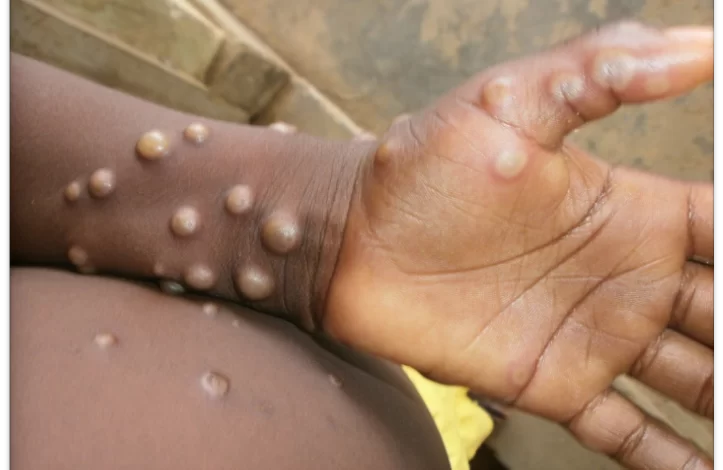
The Ghana Health Service (GHS) has confirmed a case of monkeypox in the Bia West District of the Western North Region.
The patient, a 15-year-old boy, sought medical attention on September 25, at a district government hospital after experiencing fever, body pains, a sore throat, and a rash on his palms and face.
In a public health advisory issued on Thursday, October 3, the GHS also reported that 230 suspected monkeypox cases have been identified across 88 districts nationwide.
The patient, a 15-year-old boy, sought medical attention on September 25, at a district government hospital after experiencing fever, body pains, a sore throat, and a rash on his palms and face.
In a public health advisory issued on Thursday, October 3, the GHS also reported that 230 suspected monkeypox cases have been identified across 88 districts nationwide.
The agency is urging the public to remain alert and adhere to safety protocols to prevent further spread.
As part of containment measures, health officials have identified 25 individuals who had close contact with the patient.
These contacts are currently being monitored closely to prevent any potential outbreaks in the region.
The GHS has launched a public health investigation into the confirmed case, working to trace and manage the suspected cases.
Additionally, the service will notify the World Health Organisation (WHO) per global health response protocols.
To control the virus’s spread, the GHS is emphasising public cooperation with health guidelines, including proper hygiene practices and timely reporting of symptoms such as fever and rash.
These contacts are currently being monitored closely to prevent any potential outbreaks in the region.
The GHS has launched a public health investigation into the confirmed case, working to trace and manage the suspected cases.
Additionally, the service will notify the World Health Organisation (WHO) per global health response protocols.
To control the virus’s spread, the GHS is emphasising public cooperation with health guidelines, including proper hygiene practices and timely reporting of symptoms such as fever and rash.
A global outbreak of clade IIb began in 2022 and continues to affect regions worldwide, including several African countries.
Source: Richard Nana Appiah Kubi/Ahotoronline.com




